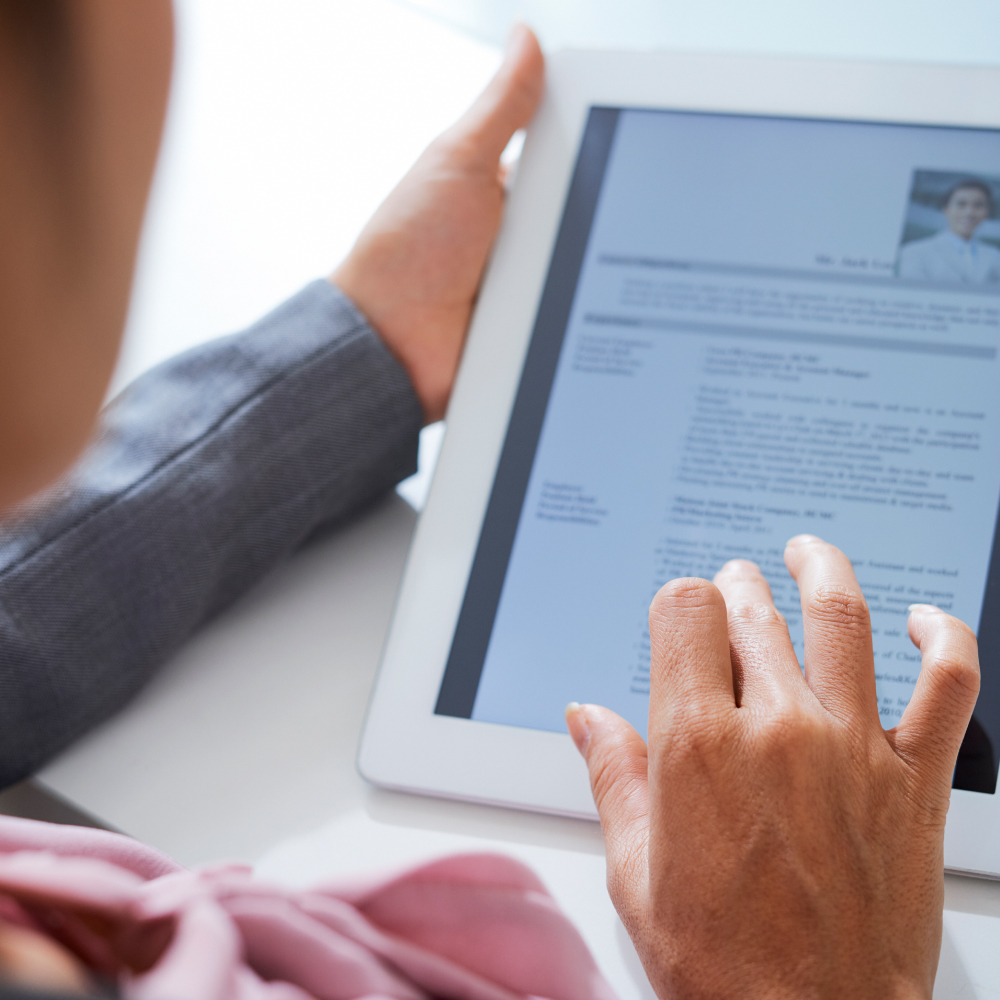
Career advice

Tips for a successful application
A well-written CV (curriculum vitae) determines YOUR chances on the world market. The more your CV echoes the experience required by our clients, the better your chances are in being selected for the assignment in question.
Your application should be designed in a way that it immediately arouses the interest of a client. Point out in a short and concise manner how you can benefit the client and their project indicating your relevant professional skills and experience.
- Cover Letter
- Photo
- CV and certificates
- References
Cover letter
If you are applying electronically, make the cover letter the content of your email rather than attaching it as a separate file. Do not send an email without a text or just with the attachments and also avoid mass or standard mails. Refer specifically to the vacancy title and if available note the reference number, too. The letter should not exceed a quarter of a page and it should emphasize your unique skills.
Check your emails regularly so that you can respond quickly to an invitation to an interview.
Curriculum Vitae and certificates
The CV should be short, concise and explicit. It should include:
- Contact information (name, address, active phone number, date and place of birth, nationality, marital status)
- A recent photo
- Military service
- Education (in a table form, start with the latest) - tertiary, secondary
- College or university (degree)
- Professional experience (in a table form, start with the latest)
- Company, activity, location and times
- Further training (courses)
- Special skills (foreign languages, computer and soft skills,…)
- Date, place and signature
Europass
The Europass is recognized in 13 countries as a standard credential and is designed for job seekers to facilitate the detailed documentation of their career. It consists of 5 documents (CV, language passport, proof of mobility, diploma and certificate explanation) and is available in multiple languages. The Europass can be found on: http://europass.cedefop.europa.eu/en/home;jsessionid=9B3348826FFFD1D5453797FF5E5B665E.wpnew2
Interview
People develop their first impression about someone or something within the first 30 to 100 seconds. First impressions can rarely be rectified. Whether you will be selected for a job or not may depend on someone's first impression about you.
Punctuality
In order to make sure you arrive on time for an interview, check the traffic first, and find out if there is parking on the company site.
Appearance
Pay attention to your attire: The style should fit the position you apply for. But just to play it safe: It's better to be overdressed than underdressed.
Preparation
Do some research about the company and prepare a short presentation about your persona, so that when asked to share something about yourself and what you know about the company, you will have a concrete answer.
Authenticity
Don't forget to be genuine and authentic during your interview. When asked about your strengths and weaknesses, your answer should include practical examples from everyday life or your professional experience. It's recommended that when discussing these factors, you focus on your professional strengths, while mentioning a few weaknesses from your private life.
Requirements
The question, why you would be suitable for the position you applied for, will most likely make room for a momentary conclusion. The best way to answer these questions would be to discuss the qualities you hold that fulfil the requirements needed for the position.
Emphasize on the credentials and qualifications you bring to the table through your educational, professional experience, language skills, computer skills, etc. Make sure you express your willingness to learn new material and gain.
Questionnaire
Prepare questions for the interviewer: What team/environment would you be part of? Are there any benefits or welfare (if yes, what benefits)? What training/education opportunities do they offer?
When asked about your salary expectations, consider any additional services, such as canteen, food coupons, discount on insurance, wellness packages, etc. and not just call a specific amount. The company's goal is to earn money with you. Therefore, you need to convince the other person about what you can contribute. If you feel like you can't fulfil the expectations, ask what it takes to fulfil what is required of you (education, training, etc.).
Other questions that you could be asked during the interview are:
- Where do you see yourself in the next 5-10 years in professional terms?
- Why did you choose your training/ educational path?
- What would be a reason for dismissal?
- What do you expect from your employer and your immediate supervisor?
Respond to all questions, because not answering or pointing out that a question might be illegitimate can only harm your outcome. Honest answers are always preferred, otherwise one might think that you have something to hide, by not answering a question.
Decision making
After the interview, don't forget to thank them for the invitation, and if no decision has been made, ask when you should expect an answer. If you have already received a commitment during the interview, you can still give yourself some time before making your decision. If you are interviewing for different companies as well, let the interviewer know that you will be making a decision in the next days/weeks.








